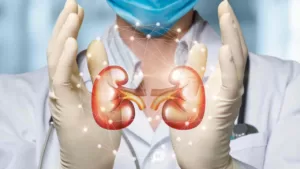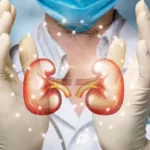The Best Fluffy Pancakes recipe you will fall in love with. Full of tips and tricks to help you make the best pancakes.
Are you considering a dental implant surgery or have recently undergone the procedure? Ensuring the success and longevity of your dental implants involves more than just the surgical process itself. It’s crucial to understand the potential risk of infections that may arise and the steps you can take to prevent them.
In this comprehensive guide, we will delve into the various aspects of preventing dental implant infections, including understanding peri-implant mucositis, the initial healing process after surgery, preventing peri-implantitis post-surgery, treatment options for infections, consulting a dental implant specialist, recognizing signs of implant infection, effective treatment approaches, and preventive guidelines. By the end of this article, you will gain valuable insights on how to safeguard your dental implants from infections and maintain optimal oral health. So, let’s explore the essential strategies to protect your dental implants and ensure their long-term success.
Key Takeaways:
- Regular check-ups with a dental implant specialist can help prevent and detect infections early on.
- Proper oral hygiene practices, such as brushing and flossing regularly, can significantly reduce the risk of dental implant infections.
- If signs of infection are present, seeking immediate treatment from a specialized dentist is crucial to prevent further complications.
Preventing Dental Implant Infections: A Comprehensive Guide
Preventing dental implant infections is crucial for the long-term success of dental implant surgery. Dr. Krivitsky and Dr. Aalam, experts at Americana Board Oral Implantology and Center Advanced Periodontal & Implant Therapy in Los Angeles, emphasize the significance of diligent oral care and infection prevention strategies for patients undergoing dental implant procedures.
When considering dental implant surgery, understanding the risks associated with infections is essential. Post-surgery care plays a vital role in minimizing the chances of infections. The specialists advise patients to maintain a strict oral hygiene routine and follow all post-operative instructions carefully. Infection prevention measures such as antibiotics and proper wound management are crucial for a successful outcome.
The expertise of specialists like Dr. Krivitsky and Dr. Aalam, combined with patient compliance to oral care routines, greatly reduces the risk of dental implant infections.
Understanding Peri Implant Mucositis
Understanding peri-implant mucositis is essential for recognizing early signs of inflammation around dental implants. This condition, if left untreated, can progress to peri-implantitis, posing significant risks to the implant’s stability and the patient’s oral health.
Peri-implant mucositis refers to the inflammation of the soft tissues surrounding a dental implant. It is typically characterized by redness, swelling, and bleeding upon probing. These symptoms, if identified early, can prompt intervention to prevent the progression of mucositis into peri-implantitis, where there is irreversible bone loss around the implant.
Early detection and management of peri-implant mucositis are crucial in preserving the long-term success of dental implants. Patients should be educated about the importance of regular oral hygiene maintenance and professional dental care to minimize the risk of developing mucositis and its potential complications.
Initial Healing Process After Dental Implant Surgery
The initial healing process after dental implant surgery is a critical phase that requires meticulous care and attention. Patients must adhere to post-surgery instructions provided by their dental implant specialists to promote optimal healing and reduce the risk of complications.
Following the dental implant surgery, patients may experience some discomfort, swelling, and minor bleeding, which are normal aspects of the healing process. It is essential to follow the prescribed medication regimen to manage any post-operative pain and minimize the risk of infection.
Good oral hygiene practices, such as gentle brushing and rinsing, are crucial during this phase to maintain the cleanliness and health of the surgical site. Avoiding strenuous physical activities and consuming soft foods can aid in a smoother recovery.
Preventing Peri-Implantitis Post-Surgery
Preventing peri-implantitis post-surgery is imperative for safeguarding the stability of dental implants and preserving oral health.
It is essential to establish a comprehensive oral care routine to minimize the risk of peri-implantitis. This includes:
- brushing at least twice daily with a soft-bristled brush
- flossing between the implants and natural teeth
- using antimicrobial mouthwash
Regular professional cleaning appointments with a dental hygienist every 3-6 months are crucial to remove hardened plaque and detect potential issues early. Any warning signs like increased gum sensitivity, bleeding, or swelling should prompt an immediate visit to the dentist for evaluation and timely intervention.
Treatment Options for Dental Implant Infections
Treatment options for dental implant infections encompass a range of interventions, including specialized care provided by periodontists, targeted antibiotic therapy, and, in severe cases, surgical management to address underlying bone and tissue concerns. Dr. Aalam and Dr. Krivitsky excel in tailoring effective treatment plans for patients with dental implant infections.
Periodontists play a pivotal role in treating dental implant infections, as they possess specialized expertise in diagnosing and addressing gum-related complications. They may recommend non-surgical treatments, such as scaling and root planing, to eliminate bacterial buildup around the implant site. Targeted antibiotic therapy is often employed to combat infection and promote healing. In severe cases, surgical intervention may be necessary to remove infected tissue, address bone loss, and salvage the dental implant. Patients benefit from the personalized approach of Dr. Aalam and Dr. Krivitsky, who prioritize comprehensive care and optimal outcomes.
Consulting a Dental Implant Specialist
Consulting a dental implant specialist is a pivotal step in ensuring the comprehensive care and management of peri-implantitis or other dental implant infections. Dr. Krivitsky and Dr. Aalam, esteemed experts in implantology, provide tailored guidance and treatment solutions for patients experiencing implant-related complications.
Specialized dental implant specialists possess an in-depth understanding of the complexities associated with implant complications. Through their expertise, patients benefit from a customized approach to address specific issues related to peri-implantitis, ensuring optimal outcomes. Seeking professional guidance also fosters a collaborative environment, where patients actively participate in devising a treatment plan personalized to their unique needs.
The expertise of Dr. Krivitsky and Dr. Aalam extends to the latest advancements in implantology, allowing patients to access innovative treatment modalities and techniques. This expertise is crucial as it ensures that patients receive the most effective and up-to-date treatment options available in the field of dental implant care.
Recognizing Signs of Implant Infection
Recognizing signs of implant infection, such as swollen or reddened gums surrounding the implants, is crucial for prompt intervention and infection management. Patients should remain vigilant and promptly report any concerning symptoms to their dental care providers for timely assessment and treatment.
Other potential signs of implant infection may include:
- Persistent pain or discomfort around the implant site.
- Unusual discharge or odor.
- Difficulty chewing or speaking.
It’s important for individuals to also pay attention to any changes in the appearance of the gums, such as tenderness or the presence of pus. Systemic symptoms like fever, fatigue, or swollen lymph nodes could indicate a more severe infection requiring immediate attention.
Effective Treatment Approaches for Infections
Effective treatment approaches for infections related to dental implants require a multifaceted strategy, encompassing targeted antibiotic regimens, diligent prevention measures, and collaborative care involving periodontists and implant specialists. Ensuring the successful management of infections is paramount for preserving the integrity of dental implants and oral health.
When encountering infections associated with dental implants, specific antibiotics tailored to the type of infection play a crucial role. In some cases, a combination of antibiotics may be necessary to address polymicrobial infections effectively. Furthermore, proactive preventive strategies, such as meticulous oral hygiene and regular professional cleanings, are essential in minimizing the risk of implant-related infections.
Interdisciplinary collaboration among dental professionals, microbiologists, and infectious disease specialists is instrumental in devising comprehensive treatment plans personalized to individual patient needs. This collaborative approach ensures that the root cause of the infection is addressed, leading to more successful outcomes.
Preventive Guidelines for Dental Implant Infections
Preventive guidelines for dental implant infections encompass a spectrum of proactive measures, including meticulous oral hygiene, routine professional cleanings, and tobacco cessation to mitigate infection risks and promote the longevity of dental implants. Adhering to these guidelines is fundamental in preserving oral health and implant success.
Ensuring meticulous oral hygiene involves regular brushing, flossing, and antimicrobial mouthwash use to inhibit bacterial buildup around the implant area, reducing the risk of infection. Professional cleanings, typically recommended every six months, address hard-to-reach areas and plaque accumulation, enhancing overall oral health and minimizing infection potential. Additionally, tobacco cessation significantly diminishes infection susceptibility by improving blood flow and immune response, crucial factors in successful implant integration. Embracing these measures enables individuals to proactively safeguard their dental implants and preserve their optimal function and aesthetics.
Author’s Insights on Dental Implant Infections
As a leading authority in implantology, Dr. Krivitsky presents valuable insights into the prevention, recognition, and management of dental implant infections. His expertise underscores the crucial role of patient education, professional care, and proactive measures in ensuring the long-term success and health of dental implants.
With advancements in implant technology, the risk of infections has significantly decreased; however, it’s imperative for patients to be aware of potential complications and the importance of diligent oral hygiene. Regular visits to a dental professional for maintenance and monitoring play a pivotal role in early detection and prevention of infections.
Proactive measures such as adherence to post-operative care instructions and lifestyle adjustments, especially for smokers, can significantly reduce the likelihood of implant infections.
Frequently Asked Questions
What are the steps to prevent dental implant infection?
To prevent dental implant infection, it is important to follow proper oral hygiene practices such as brushing and flossing regularly, using an antibacterial mouthwash, and scheduling regular dental check-ups. It is also important to avoid smoking and maintain a healthy diet.
Can antibiotics be used to prevent dental implant infection?
While antibiotics may be prescribed after a dental implant surgery to prevent infection, they are not a long-term solution for preventing infection. Proper oral hygiene and following post-surgery instructions are crucial to prevent infection.
How can I clean my dental implant to prevent infection?
To clean your dental implant, brush gently with a soft-bristled toothbrush at least twice a day. Use an antibacterial mouthwash and floss around the implant to remove any food particles or bacteria. It is also recommended to use an interdental brush to clean hard-to-reach areas.
Is it normal to experience some swelling and discomfort after a dental implant surgery?
Yes, it is normal to experience some swelling and discomfort after a dental implant surgery. This can be managed with pain medication prescribed by your dentist and by following post-surgery care instructions. If the pain and swelling persist, it is best to consult your dentist.
What are the signs of a dental implant infection?
Signs of a dental implant infection may include redness, swelling, and tenderness around the implant site, loosening of the implant, and a foul odor or taste in the mouth. If you experience any of these symptoms, it is important to consult your dentist immediately.
Can poor oral hygiene lead to a dental implant infection?
Yes, poor oral hygiene can increase the risk of a dental implant infection. Bacteria and food particles can accumulate around the implant site if proper brushing and flossing are not practiced, leading to infection and potential implant failure. It is important to maintain good oral hygiene to prevent infection.








